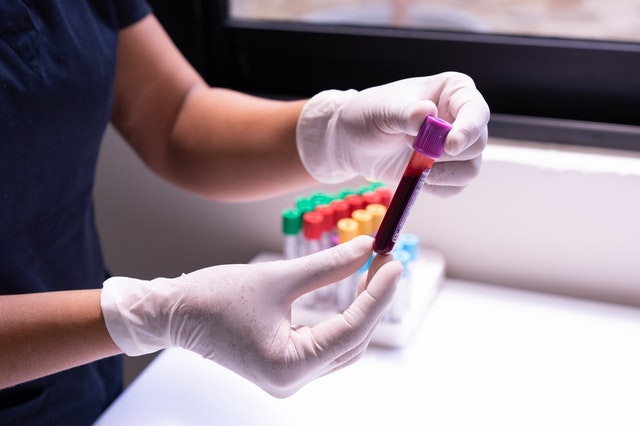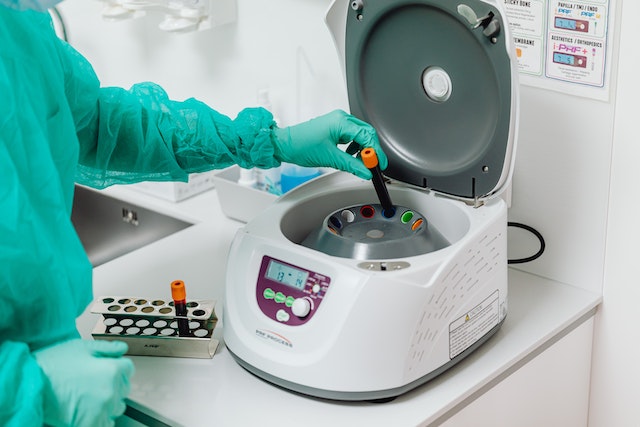If you’ve ever noticed blood in your urine, you may have wondered if there’s something wrong. While it’s always best to consult with your physician to get an official diagnosis, in many cases blood in the urine is a normal occurrence and doesn’t signal any serious problems. In this blog post, we’ll discuss the causes of blood in urine and when you should be concerned.
What blood in urine means
Blood in urine, also called hematuria, can be a sign of a serious health condition, such as kidney disease or cancer. If you see blood in your urine, it’s important to see a doctor right away for a diagnosis. blood in urine can be caused by many different things, including infection, injury, and certain medications. In most cases, blood in urine is not a sign of anything serious and will go away on its own. However, it’s important to see a doctor to rule out any underlying health conditions.
What does blood in urine look like?
Blood in urine, also called hematuria, can range from being a barely detectable stain to making your urine look bright red or brown. The color of blood in urine depends on how long blood has been present and whether it has been exposed to air.
Can blood in urine be normal?
It’s not completely unheard of for blood to show up in urine, and in some cases, it may be due to nothing more than strenuous exercise. However, blood in urine can also be a sign of a serious medical condition, so it’s important to see a doctor if you notice this symptom.
Hematuria is the medical term for blood in urine, and it can occur for a variety of reasons. In some cases, hematuria may be caused by an infection or inflammation of the urinary tract. Other possible causes include kidney stones, tumors, or certain blood disorders.
Blood in urine typically appears as red or brownish streaks in the toilet bowl water. In some cases, hematuria may cause the urine to take on a pink, red, or cola-colored appearance.
If you notice blood in your urine, it’s important to see a doctor so that the cause can be determined. In some cases, hematuria may go away on its own, but it’s always best to err on the side of caution and get checked out by a medical professional. Blood in the urine can be a sign of a serious condition, so it’s best not to ignore it.
When blood in urine is dangerous
In most cases, blood in urine is not painful and will go away on its own without treatment. However, if the blood in urine is accompanied by other symptoms like pain or fever, it could be indicative of a more serious problem and should be evaluated by a medical professional.
If you have blood in your urine, contact your doctor or make an appointment with a urologist to discuss your symptoms and received further treatment.
When is blood in urine an emergency?
Blood in urine, also called hematuria, can be a sign of a serious health condition. If you have blood in your urine, it’s important to see a doctor right away. In some cases, blood in urine may be an emergency.
If you have blood in your urine and are experiencing any of the following symptoms, it’s important to seek medical attention immediately:
– Fever
– Pain in your side or back
– Shortness of breath
– Difficulty urinating
These symptoms could indicate that you have a kidney infection or other serious condition. Seek medical attention right away if you experience any of these symptoms along with blood in your urine.
In most cases, blood in urine is not an emergency. However, it’s still important to see a doctor as soon as possible so that the cause of the blood can be determined. Blood in the urine can be caused by a variety of conditions, some of which may require treatment.
Will blood in urine go away?
Most of the time, hematuria goes away on its own. But if it doesn’t, or if you are concerned about it, talk to your doctor. They can run some tests to figure out what is causing the blood in your urine and how to treat it.

Will blood in urine affect a drug test?
Blood in your urine can also affect drug testing. If you have blood in your urine, it is possible that the test will show a false positive for drugs. This means that even if you haven’t used drugs, the test may show that you have. If you have blood in your urine and are being drug tested, it’s important to let the person doing the test know so that they can take this into account.
Will blood in urine go away with antibiotics?
Blood in the urine is often a sign of a urinary tract infection (UTI). While UTIs can be painful and uncomfortable, they are usually easy to treat with antibiotics. In most cases, the blood will go away once the infection is cleared up.
Will blood in urine affect a pregnancy test?
No, blood in urine will not affect a pregnancy test. Pregnancy tests measure the level of human chorionic gonadotropin (hCG) in your blood or urine. This hormone is only produced during pregnancy, so its presence is an indicator that you are pregnant. Blood in your urine will not interfere with the results of the test.
Which cancer causes blood in the urine?
It’s important to note that blood in the urine (hematuria) can be caused by a number of things, ranging from benign to serious. In most cases, blood in the urine is not a sign of cancer. However, if you’re experiencing hematuria, it’s important to see a doctor so they can determine the cause.
There are several types of cancer that can cause blood in the urine. These include bladder cancer, kidney cancer, and prostate cancer. If you have blood in your urine and are also experiencing other symptoms like pain or difficulty urinating, it’s important to see a doctor right away so they can rule out cancer as a potential cause.
Should a pregnant patient be worried if she notices blood in her urine?
Blood in the urine is generally not a cause for concern during pregnancy. However, if the blood in urine is accompanied by other symptoms such as pain, fever, nausea, and vomiting, it could be indicative of a more serious condition such as a missed abortion. If you experience any of these symptoms, please contact your healthcare provider immediately.
What lab tests are needed after noticing blood in urine?
If you notice blood in your urine, it is important to see a doctor as soon as possible. They will likely order one or more lab tests to help diagnose the cause of the blood in your urine.
The most common test used to diagnose blood in urine is a urinalysis. This test can detect small amounts of blood that might not be visible to the naked eye. The doctor may also order a urine culture, which can help identify infections or other issues.
Other blood tests that may be ordered include a complete blood count (CBC) and a blood urea nitrogen (BUN) test. These tests can help rule out other causes of blood in urine, such as kidney disease or blood disorders.
In some cases, a kidney biopsy may also be ordered. This is a more invasive test that involves taking a small sample of kidney tissue for examination.
If you notice blood in your urine, it is important to see a doctor as soon as possible. They will likely order one or more lab tests to help diagnose the cause of the blood in your urine.

Which doctor should I talk to about blood in urine?
Depending on the cause of blood in your urine, you may need to see a urologist or a nephrologist. Urologists specialize in the urinary tract and male reproductive organs, while nephrologists specialize in the kidneys. If blood in your urine is due to a urinary tract infection, you will likely need to see a urologist. If blood in your urine is due to kidney disease, you will likely need to see a nephrologist.
When making an appointment with your primary care doctor, be sure to explain that you are experiencing blood in your urine. This will help the doctor determine which type of specialist you need to see.
How can an online doctor consultation help me if I have blood in my urine?
If you have blood in your urine, it is important to seek medical attention as soon as possible. Blood in the urine can be a sign of a serious medical condition, such as kidney disease or cancer. A doctor can determine the cause of the blood in your urine and recommend the best course of treatment.
An online doctor consultation can help you get the medical care you need if you have blood in your urine. With an online doctor consultation, you can speak to a doctor from the comfort of your own home. The doctor can ask you about your symptoms and medical history and then provide a diagnosis and treatment plan. If you have blood in your urine, online doctor consultations can help you get the care you need to treat the underlying condition.
Conclusion
If you are experiencing blood in your urine, an online doctor consultation may be the right step for you. Our urologist, Dr. Judit Bonkovic-Oszi, Dr. Arnold Willis, MD, or perhaps Dr. Juan Jaller Char, MD our nephrologist, can provide a personalized review of your symptoms and help you get started on the path to treatment. Whether you need surgery or another form of treatment, telemedicine can help you understand your options and make the best decision for your health.
BLOG AUTHOR
Dr. Ismail Sayeed
Dr. Sayeed is the Medical Director of ViOS, Inc. He is a deeply committed physician entrepreneur & medical blog writer. While building the global infrastructure of the VIOS Clinic, he is dedicated to educate people on the potential of specialist telemedicine for managing chronic diseases.
Read more about him in his author bio

